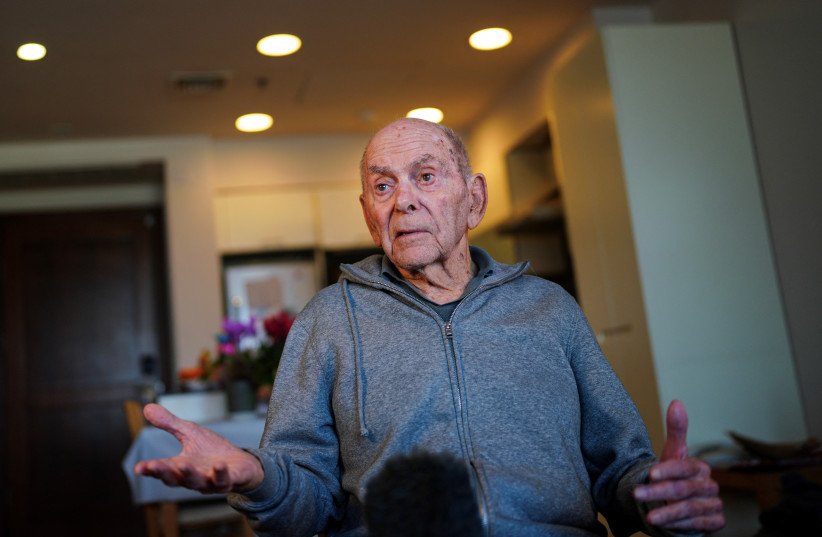Haim Raanan says he survived two holocausts.
The first was as a boy in a Jewish ghetto in Hungary during World War Two. The second was in a kibbutz in southern Israel, hiding in a safe room beside his grandson, who was around the same age as he was during the Nazi persecution.
He, his grandson, son and caregiver hid for hours, keeping silent in the stuffy and small room, hoping not to be discovered by the Palestinian gunmen who burst in from the Gaza Strip on Oct. 7 and took over their town.
Their house was not attacked, but more than 100 of his friends and neighbors from Kibbutz Beeri were killed or taken as hostages to Gaza. Altogether, about 1,200 people were killed and 240 taken captive by Hamas that day in the attack that triggered the more than three-month-old war in Gaza.
Six million Jews died in the Nazi Holocaust, but Raanan - whose family would hide from bombs in crowded basements and lived in fear of Hungary's fascist Arrow Cross militias - remembers that from the eyes of a young boy.

October 7 trauma hit even harder than the Holocaust on a personal level
This year he agreed to have his picture taken and speak at an exhibition called 'Humans of the Holocaust', which uses digital storytelling to connect the dwindling numbers of living survivors to a younger generation that is less familiar with the Nazi atrocities.
Raanan was saved, along with thousands of other Jews, by Swedish diplomat Raoul Wallenberg, who issued diplomatic papers allowing them to move to a safer area. He was 10 around the time the war ended.
He suffered for years from the trauma of his childhood, but it was less tangible, he said. The Hamas Oct. 7 rampage hit him even harder on a personal level, though he is aware that such a comment will not be easy for everyone to understand or accept.
"Logically and emotionally, this (time) I will remember the tough feeling," he explained from the retirement home in Tel Aviv where he and his wife have been staying since towns along the Gaza border were evacuated.
"In the Kibbutz Beeri massacre, I know every single person."
Two days later, the 88-year-old attended the exhibition, hosted by the European Union delegation in Israel, ahead of Saturday's International Holocaust Remembrance Day.
In the photograph of him that is on display, Raanan sits on a couch, a dog tag around his neck in solidarity with the hostages still being held by Hamas, holding up a cellphone showing a black and white picture.
In that smaller, grainy picture from decades earlier, he and his mother are seen shoulder to shoulder, each with the yellow star patch on their chests that Jews were once forced to wear.
From behind the podium, with the dog tag still dangling around his neck, Raanan again spoke of the more powerful emotions he felt from the Oct. 7 attack, which prompted the retaliatory Israeli offensive in Gaza in which Palestinian health officials say at least 25,700 people have been killed.
"In the Kibbutz Beeri massacre, I know every single person, every single member of my kibbutz and their children. For me, it was a second holocaust," he said.
When a violinist stood and played a somber song, Raanan sat and wept quietly to himself.
"Two years from now, five years from now, 10 years from now, there won't be any Holocaust survivors to tell their stories," said Erez Kaganovitz, the exhibition's creator.
"We have to remember what happened in the Holocaust, and we have to understand what are the dangers of antisemitism and blind hatred. And if we won't tackle this issue and if we won't push back against antisemitism, history might repeat itself."
